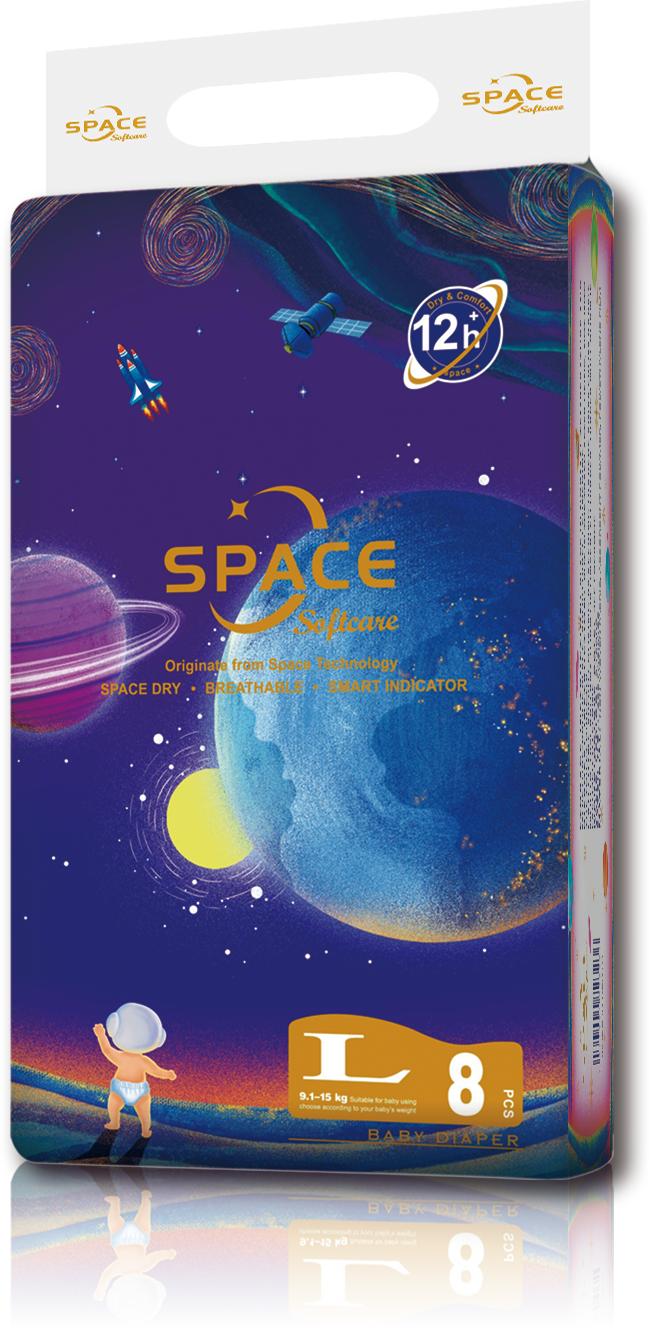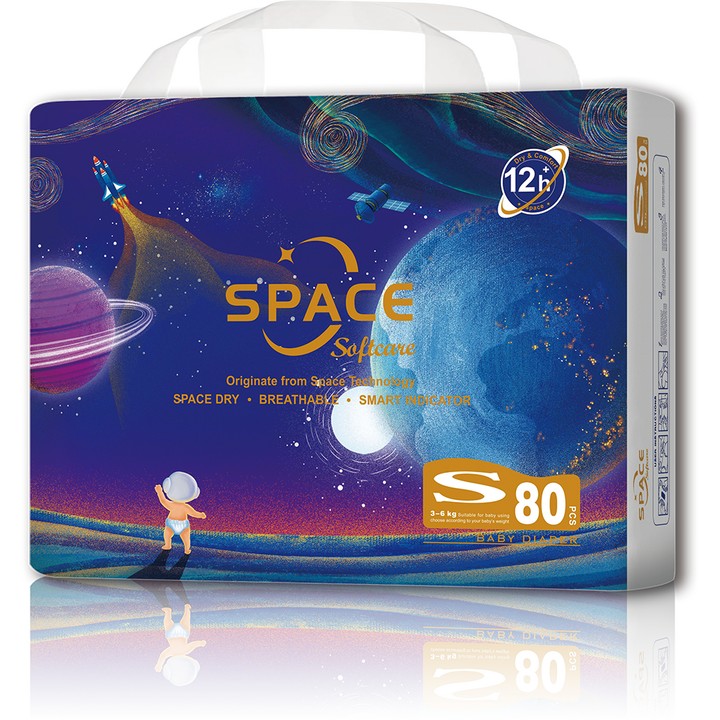Email cannot be empty
Password cannot be empty
Email format error
Email cannot be empty
Email already exists
6-20 characters(letters plus numbers only)
The password is inconsistent
Email format error
Email cannot be empty
Email does not exist
6-20 characters(letters plus numbers only)
The password is inconsistent

Softcare Space Baby Diapers (XL60)
Specification of XL60- Kenya Version
|
Product Type |
Softcare Space Baby Diapers (XL60) |
|
Size |
XL |
|
Quantity |
60 |
|
Suitable Weight |
15.1-25kg |
Choose the suitable size for your baby according to baby’s weight.
Description of XL60- Kenya Version
Our XL60- Kenya Version space baby diaper is a reliable choice for your little one's comfort and protection. This pack includes 60 diapers, specifically designed for babies weighing between 15.1 to 25 kilograms, falling within the XL size range.
The XL60- Kenya Version space baby diaper is thoughtfully designed to keep your baby dry and comfortable all day long. It features advanced absorbent properties and a leak-proof design, ensuring reliable containment and preventing any unwanted leaks or messes.
The XL60- Kenya Version space baby diaper is crafted with advanced polymer technology, ensuring efficient absorption and locking away moisture. This keeps your baby’s skin dry and minimizes the risk of irritation. Designed for babies weighing between 15.1 to 25 kilograms, the XL size provides a secure and comfortable fit.
Whether you are a parent or a baby diaper wholesaler in Kenya, the XL60- Kenya Version space baby diaper is an excellent choice. Its high-quality construction and leak-proof design make it a reliable option for ensuring your baby's comfort and protection.
The XL60- Kenya Version space baby diaper is also breathable, allowing for air circulation to keep your baby's skin fresh and dry. This feature helps to prevent heat build-up and keeps your baby comfortable throughout the day.
Choose the XL60- Kenya Version space baby diaper for its exceptional leak-proof design, advanced absorbency, and breathable construction. This diaper ensures the utmost care and protection for your little one, whether you’re using it at home or as a wholesaler serving the needs of other parents in Kenya.
When should I start potty training and how can I transition from diapers to potty training?
The ideal time to start potty training can vary for each child, but generally, it is recommended to start between the ages of 18 to 24 months. However, keep in mind that every child is different, and readiness cues can vary.
Here are some signs that your child may be ready for potty training:
1. Showing interest in the bathroom or toilet habits of others.
2. Vocalizing about their diaper being wet or soiled.
3. Demonstrating the ability to stay dry for longer periods.
4. Showing discomfort with a wet or dirty diaper.
5. Being able to follow simple instructions.
6. Demonstrating physical readiness, such as the ability to walk to and sit on the potty.
To transition from diapers to potty training, follow these steps:
1. Introduce the concept: Talk to your child about the potty and explain how it is used. You can also consider letting them observe older siblings or parents using the toilet.
2. Get a potty chair or seat: Buy a child-sized potty chair or a child seat that fits onto the regular toilet. Let your child pick their potty chair to make them feel more involved.
3. Encourage regular potty time: Schedule regular potty breaks throughout the day, especially after meals or naps. Make it a positive experience by singing songs or reading books while they sit on the potty.
4. Support their independence: Allow your child to undress and dress themselves, as this promotes independence and helps them become more comfortable with the potty routine.
5. Use positive reinforcement: Praise your child for their efforts, even if they don't use the potty successfully. Consider using a reward system, such as stickers or small treats, to motivate them.
6. Be patient and consistent: Accidents are a normal part of the learning process. Stay patient, remain consistent with the routine, and avoid pressuring or punishing your child for accidents.






